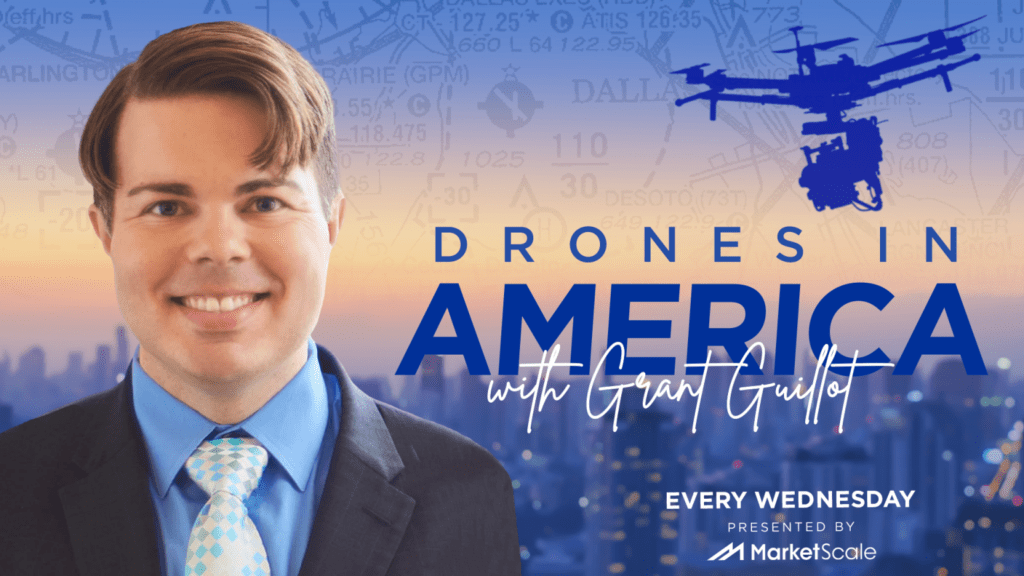By MarketScale
Welcome to this week’s episode of “Drones in America,” a MarketScale podcast hosted by Grant Guillot.
Guillot leads the Unmanned Aircraft Systems Practice Team for Adams and Reese, a law firm that practices across the Southern U.S. and in Washington, D.C.
On “Drones in America,” Guillot and industry leaders, influencers and experts explore the rapidly growing commercial drone industry in the U.S., guiding you through the complex web of technology, policy and more.
In this week’s episode, Guillot is joined by Ian Annase, CEO of Zing; Cameron Chell, CEO of Draganfly; and Ryan Walsh, CEO of Valqari. Each of these three service providers are utilizing drone technology to assist with the Covid-19 relief efforts.
Zing, which is headquartered in St. Petersburg, Florida, offers an autonomous drone delivery platform that provides last mile delivery solutions. Noting that the platform is compatible with the most common drones on the market, Annase explains, “We turn the most common DJI drones, such as the Mavic, Phantom, and Inspire, into fully autonomous, last-mile delivery robots within the current FAA regulatory framework.”
Canada-based Draganfly is the oldest operating commercial drone manufacturer in North America, and its services are especially relevant with the Covid-19 pandemic necessitating social distancing.
“We can actually identify not just temperature, but fever, heart rate, respiratory rates,” explains Chell, noting that the company is “known for specialized sensors and [its] capability to deliver a drone package to…customers that gives them a strategic advantage because of the data they can collect.”
Valqari, based out of Chicago, offers a drone delivery solution that solves the last inch logistic problems with its patented Smart Drone Delivery Mailbox, which provides a secure and convenient delivery receptacle for both drone and traditional deliveries.
“We’re really focusing on the endpoint infrastructure,” Walsh explains, “so you can have automated collection of packages…for drone deliveries for medical [supplies] or meals, or other items you need, and we are really seeing the highlight of that during the quarantine and the lockdowns across the world right now.”

